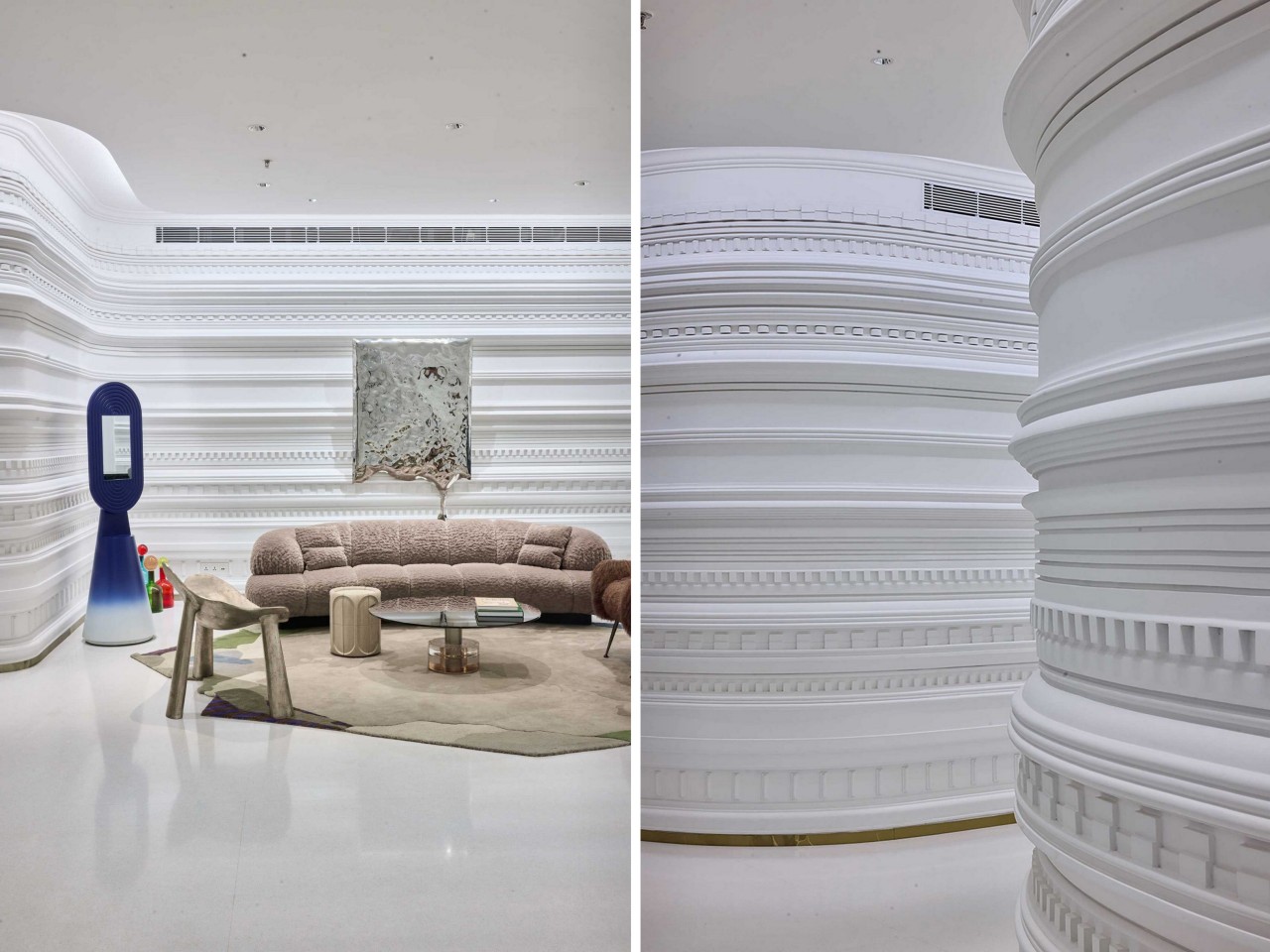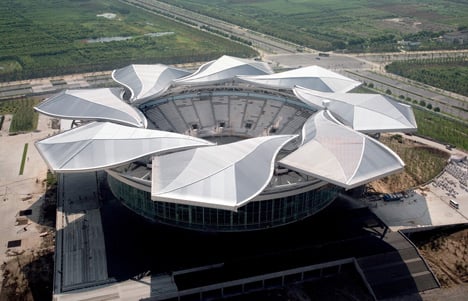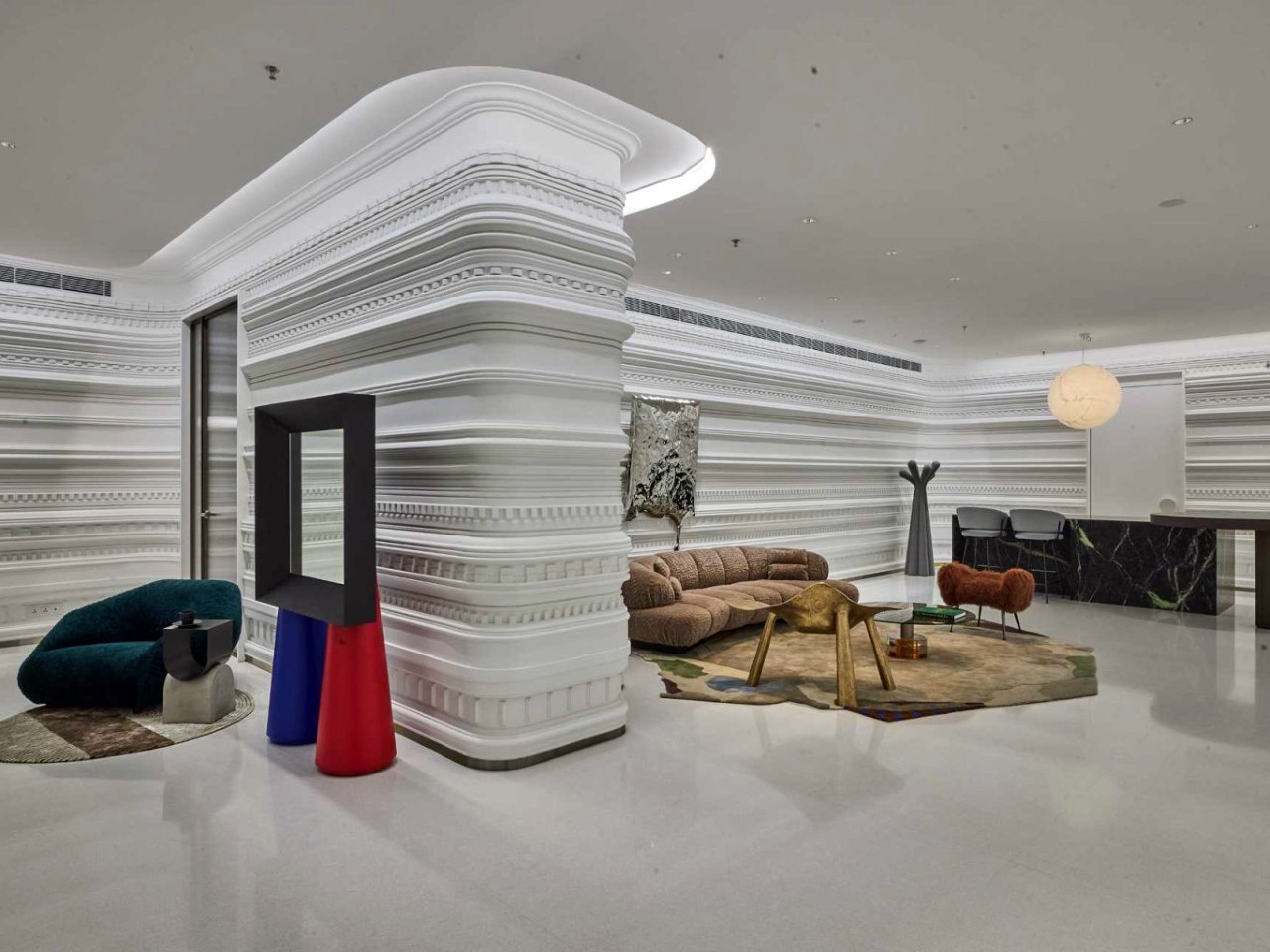
The intricate carvings of Indian temple architecture might feel like something you’d only see in ancient ruins or history books. But in a gallery tucked away in Kolkata, those centuries-old designs take on a fresh, modern form. Here, sculptural walls bring these traditional patterns to life, blending them with sleek, contemporary furniture. It’s not just a space for looking; it’s one that feels alive, inviting you to experience a mix of the old and the new in a way that feels surprisingly natural.
What’s striking is the way these walls interact with their surroundings. Ceiling lights, placed with precision, create a play of light and shadow, emphasizing the intricate details and lending the room a dynamic, ever-changing personality. The carved motifs aren’t just decorative—they become part of the atmosphere, inviting visitors to not just look, but to feel the depth of the space. The furniture, sleek and unmistakably Italian, stands in stark yet harmonious contrast, bridging the traditional and the modern without missing a beat.
Designer: Abin Design Studio
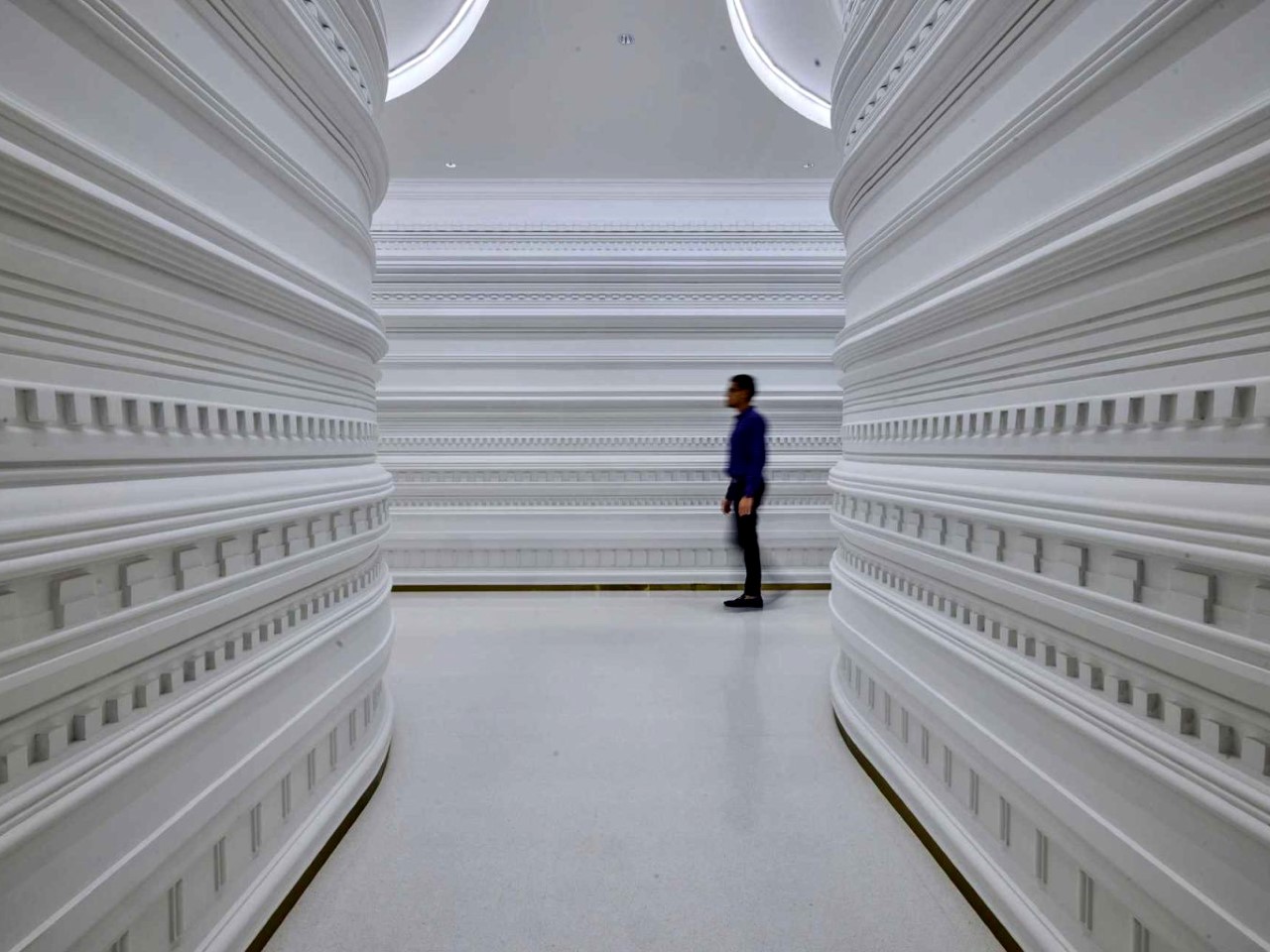

The gallery’s design draws inspiration from the elaborate ornamentation found in India’s historic temples—intricacies that often tell stories of gods, folklore, and the passage of time. But here, these stories take on a modern interpretation. Instead of religious depictions, the patterns abstractly convey rhythm, symmetry, and movement. This reinterpretation ensures the space remains rooted in tradition while being unmistakably contemporary. It’s a delicate balance to strike, and Abin Design Studio pulls it off with both flair and restraint.

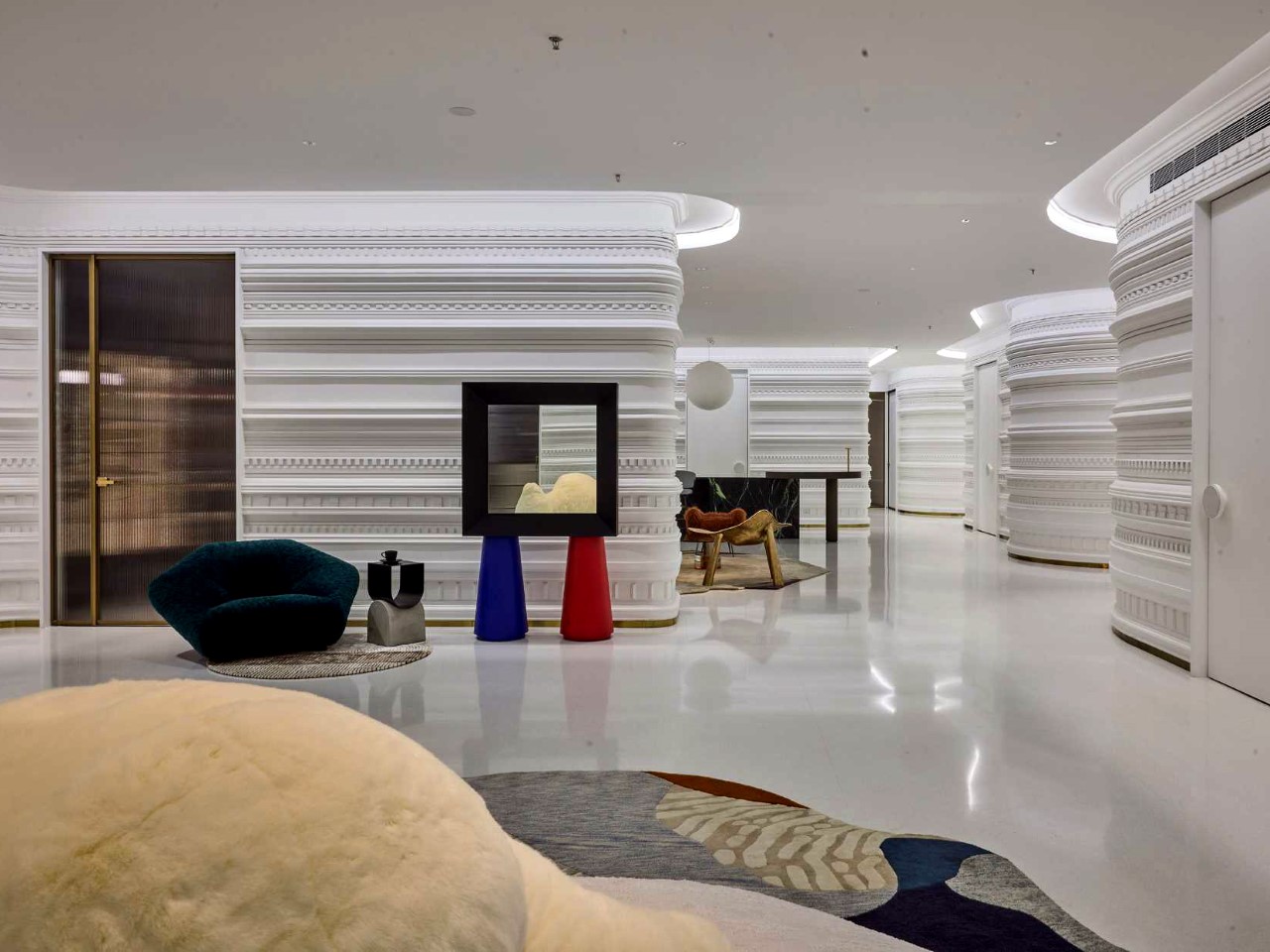
Walking through the gallery, it becomes evident that this is beyond your standard aesthetics. The walls are part of a narrative that subtly asks visitors to reflect on the importance of cultural heritage in modern design. The choice of Plaster of Paris isn’t arbitrary either. Its softness allows for easy customization while offering a texture that captures the subtle imperfections and organic feel of handcrafted art—qualities that perfectly echo the essence of ancient temple sculptures.
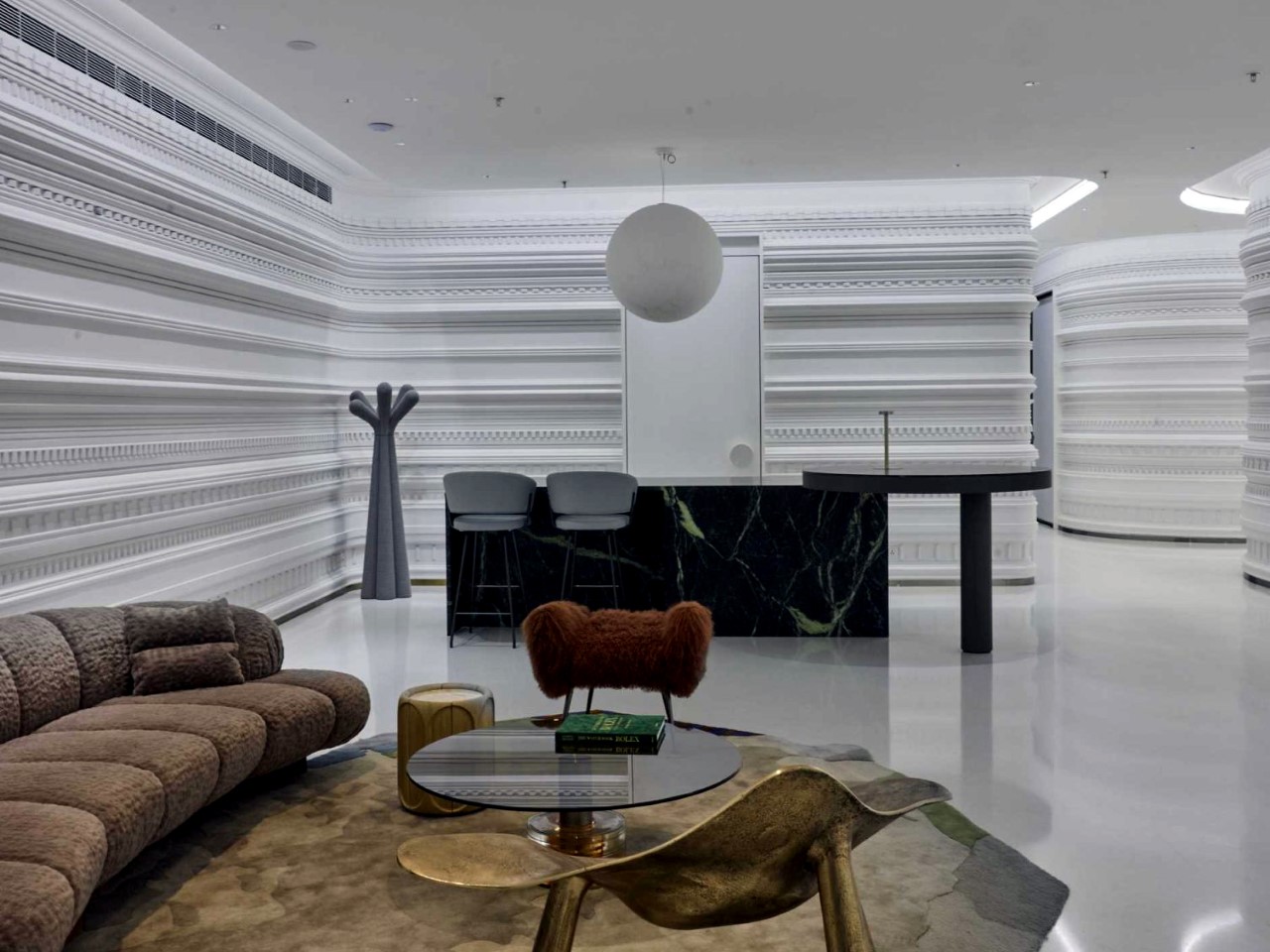
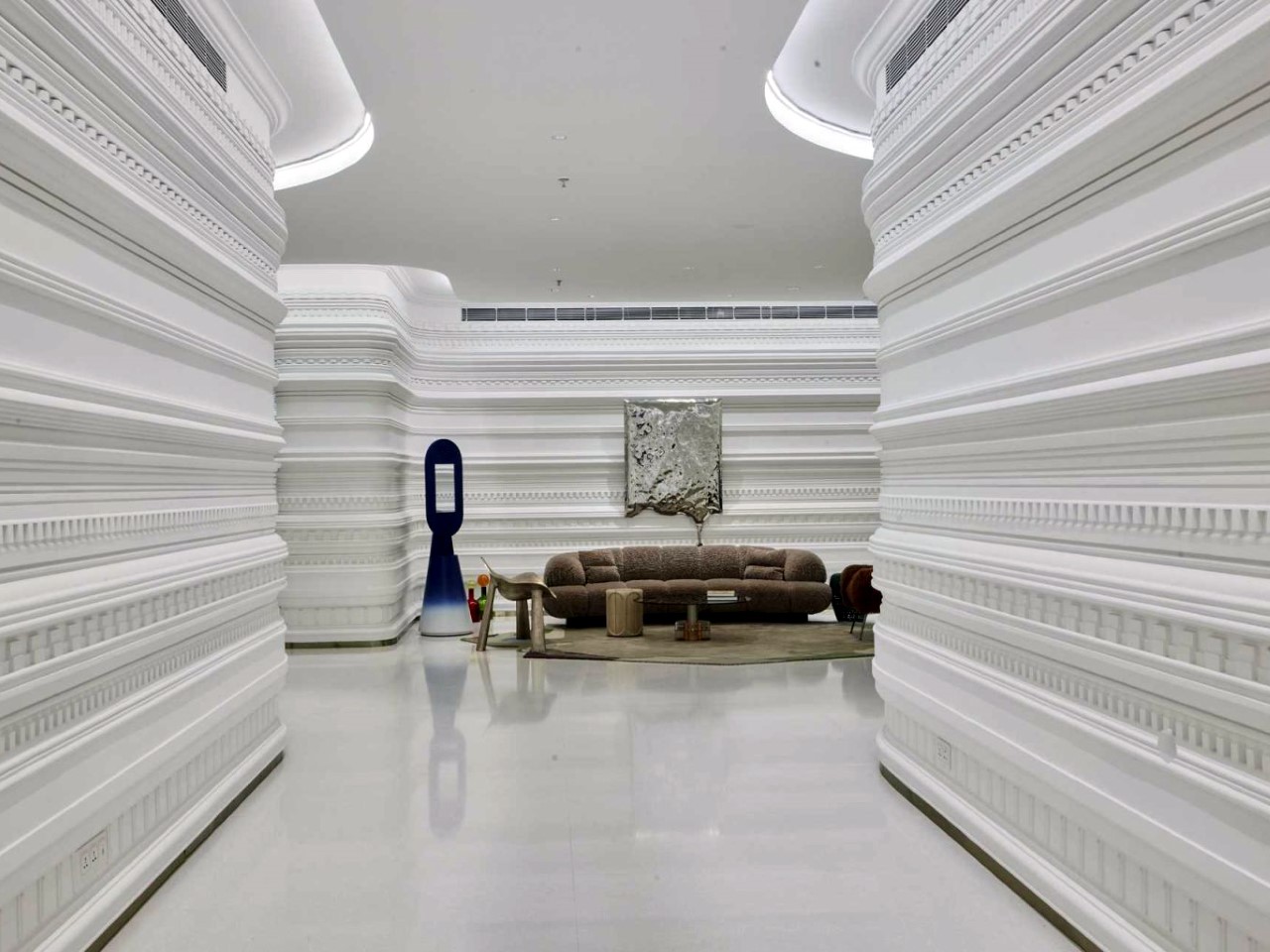
The gallery’s design approach speaks to a larger movement in architecture and interiors: the seamless blending of cultural heritage with contemporary sensibilities. This isn’t about nostalgia; it’s about evolution. By reimagining traditional temple detailing in a space dedicated to modern living, the gallery repositions these timeless motifs as relevant, even essential, in today’s design vocabulary. It’s a reminder that great design is rarely about choosing between old and new; it’s about finding ways for them to coexist and enrich each other.
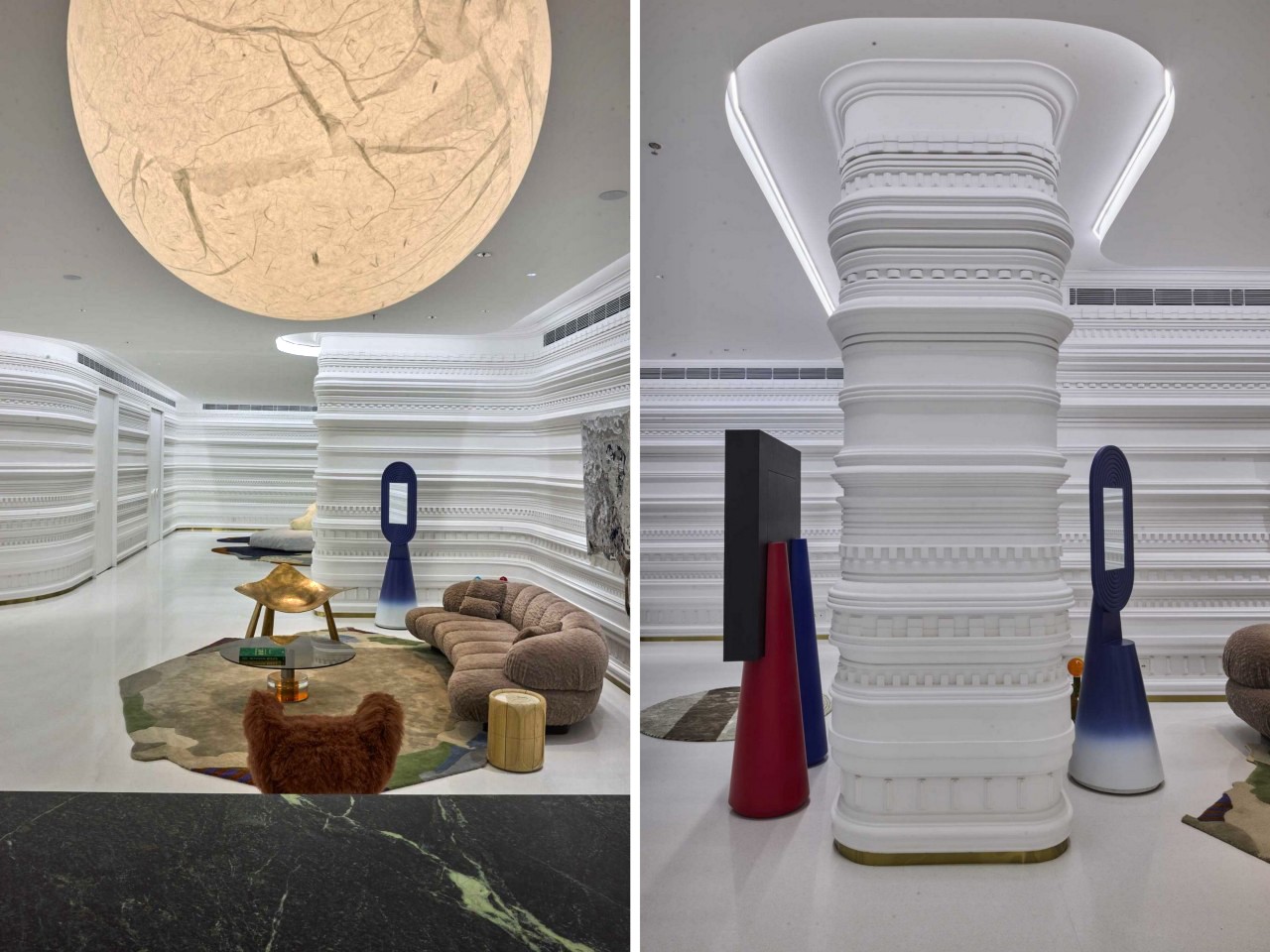
Yet, what truly sets this gallery apart is its ability to spark conversation. You can almost hear visitors pondering how the walls were made, why specific patterns were chosen, and what the interplay of light and shadow means to them personally. It’s rare for a space to achieve this level of engagement, especially one focused on something as practical as furniture. And yet, by anchoring the design in an architectural style with centuries of history, the gallery transforms itself from a showroom into a space of exploration.
